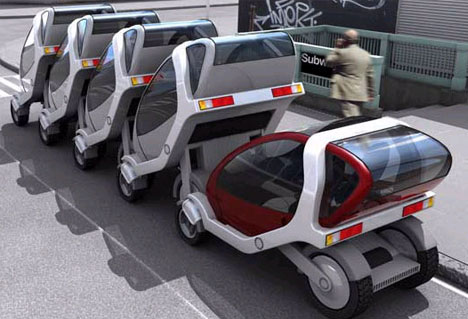
(Check out our complete collection of Green Art, Design and Technology.)
As demand for environmental alternatives grows, some green-thinking automotive designers have goneabove and beyond simple hybrid or energy-efficient cars to develop radically creative green vehicles in many senses of the word. Here are five of the most interesting, innovative, strange and downright bizarre green concept vehicles developed this past year.
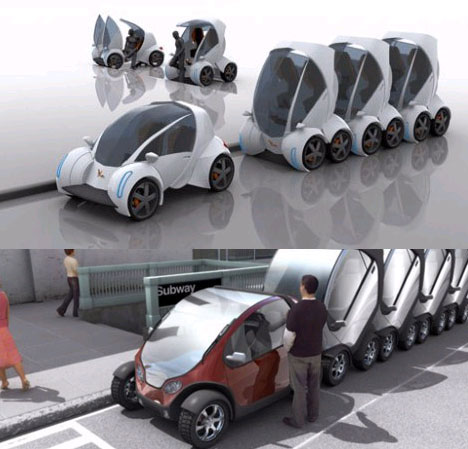 MIT’s The City Car is a brilliantly green concept vehicle that boasts the convenience and stackability of shopping or airport cart. This idea “would combine the best features of mass transit, car-sharing, and personal vehicles in a high-density, high-convenience system.” These are not intended to be long-distance heavy-use transportation devices, but rather a short-stretch solution for connecting between mass and local transit.
MIT’s The City Car is a brilliantly green concept vehicle that boasts the convenience and stackability of shopping or airport cart. This idea “would combine the best features of mass transit, car-sharing, and personal vehicles in a high-density, high-convenience system.” These are not intended to be long-distance heavy-use transportation devices, but rather a short-stretch solution for connecting between mass and local transit.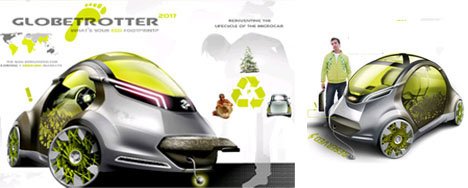
The Globetrotter by Harsha Ravi is a lightweight plastic vehicle of the future packed full of ecological innovations. It takes less energy to produce and runs mostly on solar power. Creative environmental strategies include a nano-paper battery and solar absorbing nano-paint, airless tires and a composite car body using mostly corn-based materials. For his efforts, Ravi won the Australian Young Designer of the Year Award for “innovation, intelligence of design, visual impact and form, functionality, quality, ergonomics, semantics, safety, and environmental considerations.”
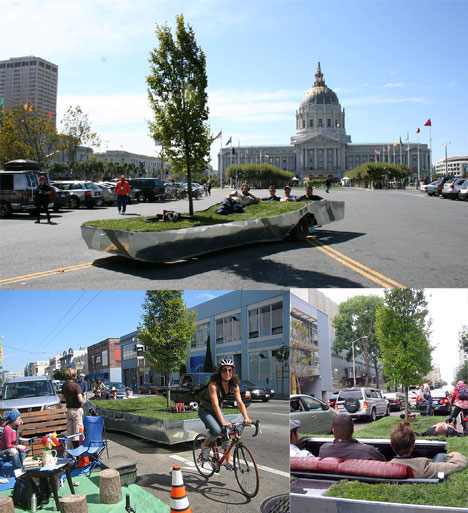
The PARK(ing) Day project began with a small temporary public park set up in a parking space a few years back, and has since grown into a global and annual event to take over the streets and create shared green spaces for everyone in cities. The so-called Parkcycle (shown in the photograph above) resulted from a vehicular collaboration with artist Reuben Margolin representation of what PARK(ing) day has become: an event emphasizing the potentially mobile and fluid nature of public parks.
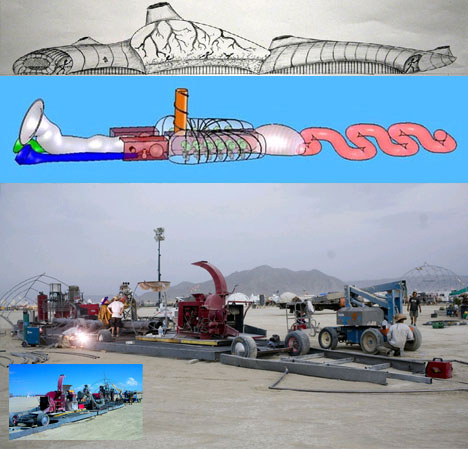
The Mechabolic project “is a large-scale bio-imitative installation of hydrocarbon based fuel production, transformation and consumption.” In short, it is both literally and figuratively a representation of digestion and natural processes, taken to this year’s green-themed Burning Man Festival. Recycled materials are converted into fuel before the eyes of curious onlookers. The process becomes the product as fuel materials are refined, digested, condensed and used to power the machine in this unique blend of art and technology.
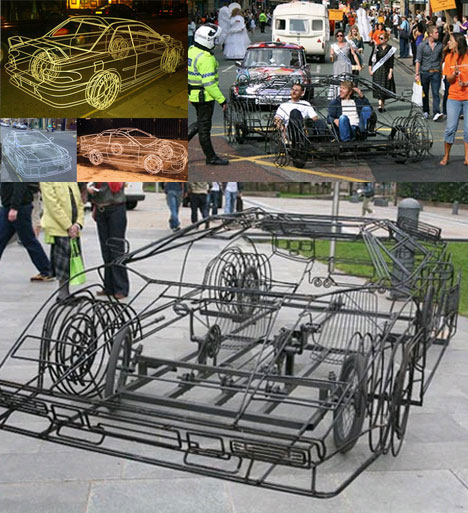
This wireframe car looks like something straight out of a 3D rendering program, but is indeed a real-life sculpture by Benedict Radcliffe. There is nothing like digital-made-real art to engender reflection on the tenuous divide between virtual and actual reality. Hopefully the artist wasn’t required to pay the traffic tickets the car accumulated while parked on the street. Even better, Radcliff teamed up with Ben Wilson to create a pedal-powered version of his wireframe vehicle – probably the most ecologically friendly ‘car’ on Earth!
You have read this article with the title Top 5 Unusually Green Vehicles of 2007: From Stackable Transport to Wireframe Cars. You can bookmark this page URL http://tiffanyeatworld.blogspot.com/2011/03/top-5-unusually-green-vehicles-of-2007.html. Thanks!










